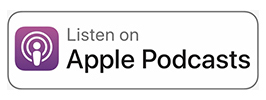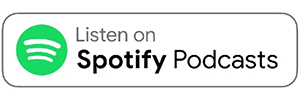Navigating the economics of home buying
Is buying a house right now a ridiculous venture?
With interest rates surging to 20-year highs and affordability strained, the vast majority of borrowers think so, according to Fannie Mae. However, going against the grain could be your ticket to homeownership, mortgage expert Shivani Peterson explains.
Peterson broke down how a recession, inflation, and interest rates are impacting the real estate space on a recent episode of The Mortgage Reports Podcast. Here’s what she had to say.
Verify your home buying eligibility. Start hereListen to Shivani on The Mortgage Reports Podcast!
What a likely recession means for borrowers
As the likelihood of a U.S. recession grows, home buyers are trying to figure out what that means for them.
House hunters can weigh the pros and cons of purchasing during a recession, but it may not affect you at all if your job is stable. Another important distinction is that recessions can be cyclical and 2008’s housing crash was an exception — not the rule.
It’s also possible the country is already entering a recession, with unemployment as the last domino to fall in order to make it official, Peterson explains.
“With the Fed hiking rates like this, something has to give and that something is likely going to be unemployment. Economists are now saying, and I quote, ‘it’s hard to imagine how the U.S. could avoid a recession.’ The average prediction of the length on that recession is eight months,” she said.
If it does end up being a shorter recession, it would have a lesser impact on housing values for those who do buy a home.
Check your home loan options. Start hereRising rates and falling home prices
The Federal Reserve made multiple historically high hikes to its fed funds rate this year to combat inflation, with more anticipated into 2023. While the Fed doesn’t set mortgage rates, its policy actions are intrinsically tied to interest rate movement.
Because inflation continues to run hot, some experts are predicting mortgage rates could shoot past 8%.
However, this year’s surging rates come with an upside, too. Greatly reduced buyer demand over the last few months has slowed home price growth. And some economists are now predicting home prices will actually drop a few percentage points in the coming year, Peterson explains.
What will next year bring for the housing market?
Where it gets interesting is what turn the interest rate rollercoaster will take. Peterson anticipates the Fed will start cutting its rate as soon as there’s a definite recession.
But even if there’s only talk of the Fed slashing its rates, mortgage rates could improve for borrowers as lenders bake in anticipated moves by the central bank. And if you lock in a mortgage now, you can always refinance to lower your monthly payments when rates eventually hit a down cycle.
Peterson implores borrowers not to fear the current market since it may look worse than it is. “Dive deeper into the data and don’t only look at the headlines before making a home buying decision. Get past the clickbait and actually read the information,” said Peterson.
Advice for new home buyers
All this economic push-pull muddies the waters and makes timing the housing market nearly impossible. But Peterson recommends using it to your advantage.
“When everybody’s looking in one direction, you can shift your gaze just slightly and find opportunity,” she said.
If you’re ready to buy your first property, talk with a local lender or real estate professional to begin your path to homeownership.
Time to make a move? Let us find the right mortgage for you

